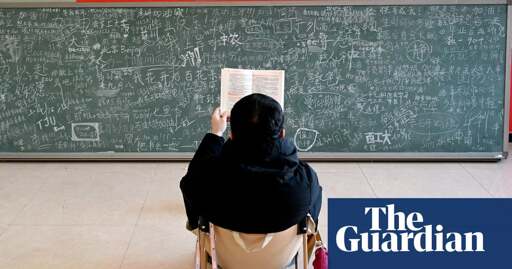Neijuan is the Chinese term for “involution”, a concept from sociology that refers to a society that can no longer evolve, no matter how hard it tries. Applied to the individual, it means that no matter how hard someone works, progress is impossible.
In China, the term has been used to describe the feeling of diminishing returns in China’s economy. The characters “nei” and “juan” literally mean rolling inwards. After decades of rapid growth, many Chinese millennials and Gen Z people feel that the opportunities that were available to their parents no longer exist, and that working hard no longer offers guaranteed rewards.
[…]
China’s leaders have made it clear that they don’t want the idea of neijuan to catch on more than it already has. In December, top economic policymakers gathered for the annual Central Economic Work Conference, which sets the national economic agenda. According to the readout of the closed-door meeting, the cadres pledged to “rectify ‘involutionary’ competition”. And speaking at Davos in June, China’s premier, Li Qiang, warned against “spiralling ‘involution’” in the world economy.
[…]
Neijuan is also increasingly used to describe certain industries. China is investing massively in what it calls “new quality productive forces”, which means focusing more on research and manufacturing in certain hi-tech sectors, such as solar, electric vehicles and batteries. But overproduction, coupled with sanctions from the US and other western markets, has led to a price war in some sectors, hurting their profitability.
[…]
Although the term has been around for decades in academic circles, it went viral on China’s internet in 2020. A student from Tsinghua University, one of China’s most elite schools, was filmed riding his bicycle with his laptop open, propped up on the handlebars. Soon he was crowned as “Tsinghua’s involuted king”, and a meme was born.
The meme of the involuted king came to represent the perhaps pointlessly intense pressure of China’s rat race, and the impossibility of catching a break. During the Covid-19 pandemic, many people felt physically as well as economically trapped.
[…]


